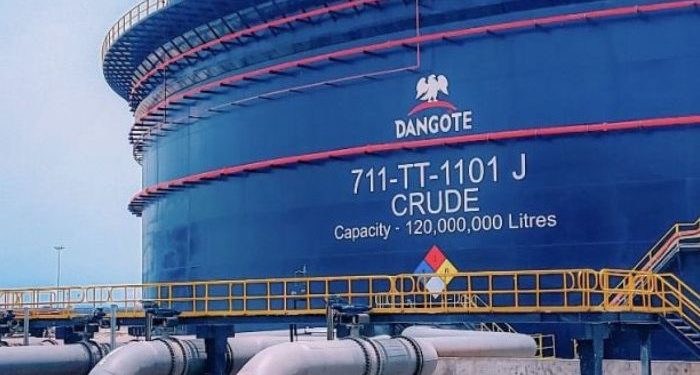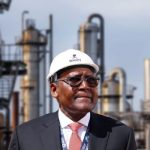The Dangote Petroleum Refinery has exported two cargoes of jet fuel—approximately 130 million litres—to Saudi Arabia, marking a significant milestone in Nigeria’s refining ambitions.
This development aligns with projections by the Organisation of Petroleum Exporting Countries (OPEC) that the 650,000-barrel-per-day (bpd) refinery will disrupt global crude and product markets. The refinery’s president, Aliko Dangote, described the export as a step toward achieving its strategic goals.
Nigeria’s refining push comes amid the shutdown of refineries in the Global North, positioning the country to serve markets in the Middle East and beyond. Last December, the Nigerian National Petroleum Company Limited (NNPCL) announced its first sale of Port Harcourt Low Sulphur Straight Run fuel oil to Dubai-based Gulf Transport and Trading Limited.
Dangote, speaking during a visit by the Nigerian Economic Summit Group (NESG) to the Dangote Fertiliser and Refinery complex in Ibeju Lekki, Lagos, said the refinery currently produces 550,000bpd.
“We are reaching the ambitious goals we set for ourselves, and I am pleased to announce that we have just sold two cargoes of jet fuel to Saudi Aramco,” he stated.
Dangote also spoke against excessive import reliance, stressing that even leading economies like the U.S. and China actively protect their industries. He cited Benin Republic’s cement import restrictions as an example of how governments safeguard local businesses.
“The President [of Benin] is a personal friend, and my Ibese plant is just 28km from Benin, yet they refuse to allow imports to protect their local industries, most of which are grinding plants,” he said.
He emphasized that the Nigerian government benefits when the private sector thrives, revealing that 52% of every naira generated by Dangote Cement goes to the government. However, he acknowledged the immense challenges businesses face due to Nigeria’s infrastructure deficits and the high cost of industrial investment.
NESG Chairman, Niyi Yusuf, praised Dangote’s investments, stating that large-scale projects like the refinery are crucial for Nigeria to achieve its $1 trillion economic target.
“To reach a $1 trillion economy, much of that must come from domestic investments. I joked during the bus ride that while others are dredging to create islands for leisure, you’ve dredged 65 million cubic tonnes of sand to create a future for the country. This refinery, fertilizer plant, petrochemical complex, and supporting infrastructure are monumental,” Yusuf said.
He noted that such investments would accelerate industrialization and support the growth of small and medium-sized enterprises (SMEs).
As Dangote Refinery expands its exports, Nigeria is positioning itself as a key refining hub, reducing reliance on imports while enhancing local industrial capacity.









